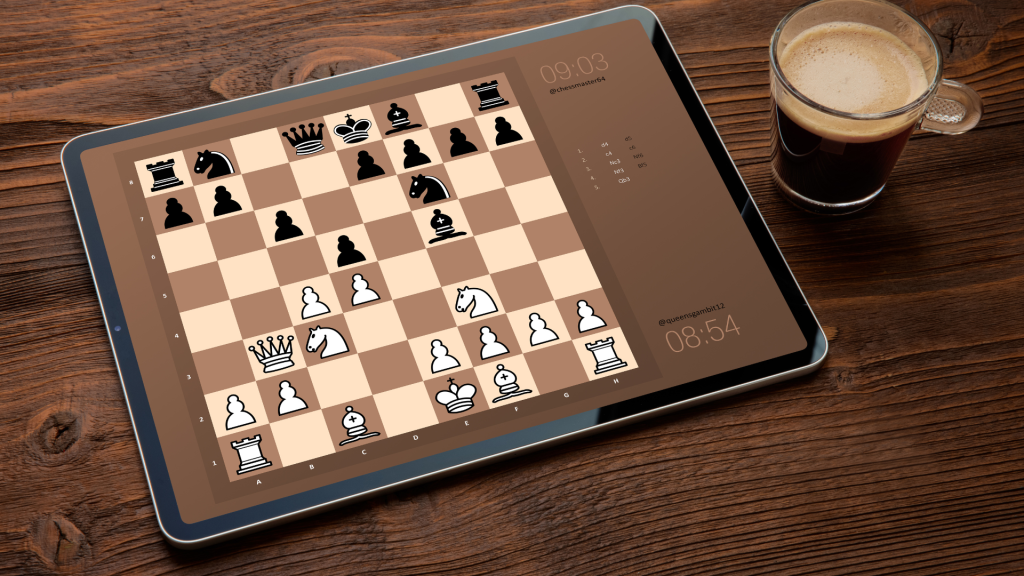Chess tournaments? Hosting your own has never been this easy in a 100 years

In the world of chess, traditional chess clubs have been the cornerstone of community and competitive play at chess tournaments. For decades, they have served as the hub for players to meet, strategize, and test their skills against one another. However, with evolving times and the accelerated shift towards digital interactions, maintaining the vibrancy and member enthusiasm in these clubs can be challenging. While many coaches and organizers have witnessed a decrease in membership due to repetitive patterns and a lack of innovative approaches, there is a way to turn the tide. Welcome to the future of chess clubs: Chess Tribe.
Chess Tribe redefines the way we approach chess, transforming it from a mere board game into an engaging, rewarding experience. By leveraging the power of online chess tournaments and a robust reward system, Chess Tribe provides a platform for chess enthusiasts to compete, learn, grow and earn rewards, all while being part of a vibrant, supportive community. Whether you’re a chess coach wanting to inspire and retain your pupils, or a chess club organizer hoping to grow your club, Chess Tribe offers a compelling, innovative solution to reinvigorate your chess community.
Table of Contents
The Power of Online Chess Tournaments
In recent years, online chess tournaments have surged in popularity, presenting an exciting blend of the traditional game’s intellectual stimulation with the convenience of digital accessibility. But, what’s making these tournaments a new favorite for both players and organizers?
Firstly, online chess tournaments are, by their nature, highly flexible. With players participating from the comfort of their homes, geographical boundaries are no longer barriers. Players from different countries, cities, or time zones can engage in stimulating competition with just a few clicks. Such convenience encourages greater participation and offers exposure to diverse playing styles and strategies.
Secondly, online tournaments allow for rapid feedback and improvement. On Chess Tribe, for example, players have immediate access to post-game analysis, enabling them to learn from their mistakes, understand their opponent’s strategy, and improve their gameplay. This feature is particularly appealing for those wishing to advance their chess skills more rapidly.
Lastly, online chess tournaments, especially on platforms like Chess Tribe, create a sense of community. Participants can engage in discussions, share strategies, and learn from one another, fostering a sense of camaraderie that extends beyond the chessboard.
In a nutshell, online chess tournaments serve as a digital arena for players to compete, learn, and grow. They extend the boundaries of what a traditional chess club can offer, making chess more accessible, interactive, and rewarding.
The Impact of Rewards on Player Engagement
While the intellectual and competitive aspects of chess are undeniably appealing, sustaining player engagement can sometimes be a challenge. This is where the power of rewards comes into play. A well-implemented rewards system can significantly enhance player commitment, motivate continual learning, and create a sense of accomplishment that goes beyond the thrill of the game.
Rewards can take on various forms, from achievement badges to ranking points, and yes, even coupons. Imagine the excitement of a player earning a discount at their favorite store just by playing chess! It adds a tangible element of fun and competition, as players can not only aim for checkmate but also strive to earn these exciting rewards.
At Chess Tribe, we understand the impact of this dual incentive. Hence, we’ve implemented a unique rewards system where players can earn coupons while they engage in chess tournaments. These rewards not only provide an additional motivation to participate but also add an element of surprise and delight, enriching the overall chess experience.
By infusing rewards into the gameplay, we’re not just offering players an opportunity to enjoy their favorite game; we’re also making it more fulfilling. This reward-infused approach helps chess coaches and organizers keep their members enthusiastic and eager to participate, ensuring their clubs remain vibrant and active.
Building a Chess Community with Chess Tribe
Creating a supportive and engaged chess community goes beyond organizing tournaments and rewarding players. It involves fostering an environment that encourages interaction, learning, and mutual growth. That’s where Chess Tribe comes into play.
On Chess Tribe, we believe in the power of community. Our platform isn’t just a place for tournaments; it’s a space for chess enthusiasts to connect, discuss strategies, share insights, and learn together. It’s an environment where new players can seek advice from experienced ones, and seasoned players can discover fresh perspectives from newcomers.
Moreover, Chess Tribe’s online nature allows it to accommodate players from different corners of the globe, making it a truly diverse and international community. It brings a sense of belonging, where each member, regardless of their skill level, can contribute to and learn from the group. This inclusiveness not only makes chess more enjoyable but also stimulates continual learning and growth.
In a Chess Tribe community, every move on the chessboard becomes a shared experience, an opportunity for conversation, learning, and bonding. Chess is no longer just a game; it becomes a medium for connection, growth, and mutual support. By joining Chess Tribe, chess coaches and organizers can offer their members this enriching, community-driven experience, thereby enhancing their club’s attractiveness and retaining more members.
Transforming Chess Coaches and Organizers’ Roles
In the traditional chess club setting, the roles of coaches and organizers are fairly defined. Coaches teach strategies, while organizers plan tournaments and manage memberships. However, in the Chess Tribe world, these roles evolve into something far more enriching and rewarding.
As a coach or organizer on Chess Tribe, you become a community builder. You have the opportunity to create an environment that encourages not just learning and competition, but also camaraderie and mutual support. You can initiate discussions, facilitate the exchange of ideas, and motivate players to engage, learn, and grow together.
Moreover, with Chess Tribe’s reward system, you have another tool at your disposal to stimulate engagement and retention. You can manage and distribute rewards, creating an additional layer of motivation and enjoyment for your members.
Perhaps most importantly, the online nature of Chess Tribe allows you to reach and engage with players beyond your local area. You can grow your chess club into an international community, bringing together diverse players and perspectives, thereby enriching the overall experience for everyone involved.
In essence, Chess Tribe empowers you to turn your chess club into more than just a place for games. It becomes a vibrant, rewarding community that fosters learning, growth, and enjoyment, helping you retain your members and attract new ones.
Conclusion
The world of chess is evolving, and to keep up, chess clubs need to adapt. Gone are the days where chess clubs were just places for competition. Today, they need to be communities that stimulate interaction, learning, and growth. They need to offer more than just games; they need to provide rewarding experiences.
This is where Chess Tribe comes in. By embracing online chess tournaments, rewarding players, and fostering an engaging community, Chess Tribe transforms chess clubs into vibrant, active, and enjoyable spaces. It empowers chess coaches and organizers to build communities that not only play chess but also connect, learn, and grow together.
With its unique blend of competition, rewards, and community, Chess Tribe is revolutionizing the chess club experience. So, if you’re a chess coach or organizer looking to elevate your club, look no further. Join Chess Tribe today and let’s take your chess community to new heights.







Responses